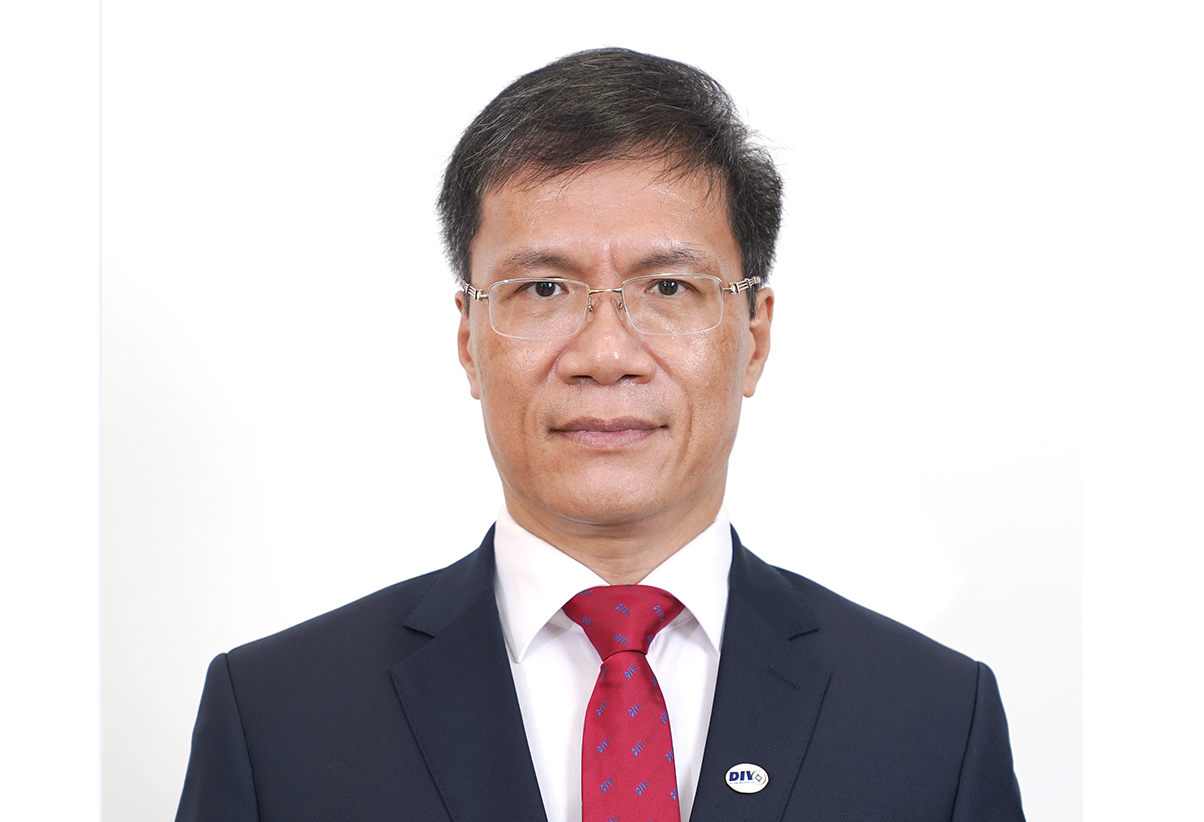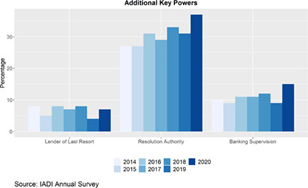 The DIV is actually an effective tool of the State in maintaining the operational stability of the banking system, and has been gradually participating in the process of restructuring the system of credit institutions and resolving bad debts. To know more about these results, we had an interview with Mr. Pham Bao Lam - Chairman of the Board of Directors of the DIV.
The DIV is actually an effective tool of the State in maintaining the operational stability of the banking system, and has been gradually participating in the process of restructuring the system of credit institutions and resolving bad debts. To know more about these results, we had an interview with Mr. Pham Bao Lam - Chairman of the Board of Directors of the DIV.
Reporter: What do you think about the meaning and roles of deposit insurance in the current period?
Mr. Pham Bao Lam: Deposit insurance (DI) is a public policy of the Government designed to protect depositors who have certain limitations in accessing information about the performance of deposit-taking institutions. DI policy contributes to stabilizing the system of credit institutions, improving public confidence, thereby helping to minimize the risk of bank-runs, creating a mechanism to resolve troubled deposit-taking institutions and participate in resolving financial crisises. In Vietnam, the DIV was established under the Prime Minister’s Decision No. 218/1999/QD-TTg dated November 9, 1999 and officially came into operation on July 7, 2000. The DIV is the sole institution assigned to be the focal point agency in implementing DI policy to protect the legitimate rights and interests of depositors, support troubled credit institutions, manage and prevent risks in banking operations.
For years, DI policy has proven its role as a very important tool for building trust as well as protecting the legitimate rights and interests of depositors at insured institutions. Especially, in the context of the Government and the State Bank having been drastically restructuring the system of credit institutions together with bad debt resolution, the DIV has been assigned new tasks to effectively participate in this process, specifically in: providing special loans; buying long-term bonds issued by assisting credit institutions; assessing the feasibility of recovery plans for institutions under special control; participating in developing bankruptcy plans of credit institutions under special control to submit to the State Bank for consideration and approval.
After 21 years, the position, roles, necessity of DI policy and the importance of the DIV - a special financial institution of the economy in general and of the national banking and financial system in particular - has been confirmed.
With DI policy in place, people feel secure when depositing money with credit institutions, thereby facilitating the process of capital mobilization, changing depositors’ behavior, helping depositors enhance their awareness and be calmer amid false and unfavorable information, contributing to stabilizing the banking system.
Reporter: As the DI policy implementation agency, how has the DIV performed its functions and duties to well protect depositors' interests and contribute to ensuring the safety of banking operations, especially while the Government and the State Bank have been drastically restructuring the system of credit institutions in association with resolving bad debts?
Mr. Pham Bao Lam: In recent years, the DIV has made positive contributions to the process of economic renovation, the restructuring of credit institutions, typically the People’s Credit Funds (PCFs) –whose depositors are mainly in rural areas.
Through the implementation of DI operations, the legitimate rights and interests of depositors have been ensured, people's confidence in credit institutions has been strengthened, thereby increasing their reputation, facilitating them to speed up capital mobilization for economic development.
Especially, right after its establishment and throughout its operation, the DIV has promptly made payouts to depositors at failed PCFs; thereby strengthening the confidence of depositors and ensuring security in local areas.
Currently, the DIV is protecting more than VND 5.7 million billion in deposits of depositors' at 1,282 insured institutions; effectively implementing DI operations such as: collecting premiums, investing temporarily idle capital, examining and supervising insured institutions, especially making contributions to in-depth supervision and examination and proposing resolution options for weak PCFs according to the provisions of the 2017 Law on amendments and supplements to a number of articles of the Law on Credit Institutions.
In addition, public awareness promotion has been actively implemented, focusing on diversifying contents and forms of communication, expanding communication channels to remote areas, building depositors’trust in Vietnam’s system of credit institutions.
Reporter: In order to better protect the interests of depositors as well as contribute to maintaining a safe and sound banking system in the coming time, what are the orientations of the DIV?
Mr. Pham Bao Lam: In order for the DIV to further promote its internal strength to firmly step into a new development stage, work as an effective tool and contribute to the successful implementation of the common tasks of the banking sector, the DIV is determined to successfully implement the Development Strategy of the DIV to 2025 with orientations to 2030 upon approval from the Prime Minister, in which the focal tasks are as follows:
Firstly, to review and propose amendments and supplements to the Law on DI, legal documents related to DI policy in accordance with actual situations and international practices; to improve the capacity of the DIV to participate more deeply and effectively in the process of resolving weak credit institutions, best protect the interests of depositors and contribute to ensuring the safety of banking operations.
Secondly, to develop the DIV in line with the extended Pay-box model with the State Bank playing a role as the owner representing agency. To achieve this goal, the DIV must strengthen its financial capacity, improve its operational capacity, consolidate its organizational structure, enhance staff qualification, and apply modern technology in management, governance and administration for sustainable development.
Thirdly, to participate in restructuring credit institutions under the direction of the State Bank, improve the quality of examination, supervision, early warning of risks and resolving weak credit institutions, especially troubled PCFs; to improve financial capacity through assessing and well collecting DI premiums in accordance with legal regulations; to effectively invest temporary idle capital on the principle of capital preservation and growth; to promote public awareness and communication activities to disseminate information on DI policy to the public in rural, remote and isolated areas where insured institutions operate.
Fourthly, to promote international exchange and cooperation, approach international standards and practices on DI.
The DIV will step by step enhance its roles and functions, renovate its operations to be an effective policy tool and contribute to maintaining the stability and the safe and sound development of the system of credit institutions in Vietnam.
Reporter: Thank you very much!



























